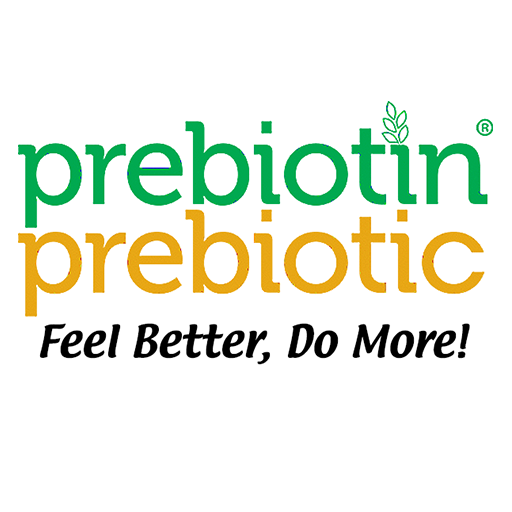
by Dr. Frank Jackson
Prebiotin Academy
Medical Concerns, Scientific Research and Diets
Colon Polyps and Cancer
Resources on this page:
The Facts
Introduction
Colon cancer is very common and is a leading cause of cancer deaths. In almost every case, colon cancer starts out as a colon polyp. Therefore, removing polyps prevents colon cancer. If someone in your immediate family, parents, brother, sister, children – has had colon polyps, and, especially colon cancer, then you are at increased risk. African Americans have an increased death rate from the disease. The bottom line is that almost anyone can develop colon cancer and that it is preventable by removing polyps.
- Anyone can get colon cancer.
- If someone in your family has it, you are at increased risk.
- Colon cancer is preventable by removing colon polyps.
What is a Polyp?
A polyp is a benign growth that can become cancerous. These fleshy tumors grow on the inside lining of the colon and are shaped like a mushroom or dome-like button. They may be as small as a pea or larger than a plum. They start out benign but then some of them become malignant as they get larger. The larger the polyp, the more likely it will have cancer within it.
What Causes Colon Polyps and Cancer?
The science on this question is slowly becoming clear. In some people, it is determined by genes. Some genes cause a huge number of colon polyps at a very early age. Colon cancer develops in all these individuals and the only cure is to remove the colon. Other cancer-causing genes are not so devastating but they are still important. However, there are many people with colon cancer with no family history of polyps or cancer at all.
The other major contributing factor is diet. What we eat and what we don’t eat makes a difference. I refer you to the section below on prevention, but in a word, those who consume large amounts of red meats, saturated and trans fats and who eat low quantities of fruits, vegetables and fiber are at increased risk. Your calcium intake may also be a factor. You can control your diet.
- Cancerous genes can cause colon polyps and cancer.
- Excessive red meats, saturated fats and inadequate vegetables, fruits, fiber, and perhaps calcium, are key risk factors.
- Smoking cigarettes for over 30 years is another risk factor.
What Are the Signs and Symptoms?
With polyps, the answer is nothing. They occur painlessly and can only be detected by screening colonoscopy. With cancer, the following symptoms and signs may occur. Unfortunately, when they do, the tumor may be fairly large and advanced. See your physician immediately if you have any of the following:
- rectal bleeding
- maroon, dark or even black bowel movements
- recurrent, frequent abdominal cramps or gas
- unexplained weight loss or fatigue
How Do You Make the Diagnosis?
The first thing that is done by the physician is to take a careful medical history and do a digital rectal exam. Colonoscopy is almost always recommended as this is the only way to see the entire colon, remove polyps and do biopsies. Colonoscopy uses a lighted, flexible tube and is done under light sedation. Virtual colonoscopy uses an advanced form of x-ray. It is fairly good at detecting polyps and tumors, but of course, these can not be removed or biopsied. An older exam called a barium enema is helpful at times, but not often done anymore.
- medical history
- digital rectal exam
- colonoscopy
Prevention
The diet of North Americans and Europeans has dramatically changed over the past several hundred years. As we live day to day and year to year, we just don’t see it. We assume this is the way people have always eaten. However, in the distant past, plant food – fruits, vegetables, seeds, fiber – was the mainstay of the diet. For the ordinary person, meat was not readily available and not often eaten. My, how things have changed!
Diet
Introduction
The following information describes dietary steps which may reduce your chance of getting colon cancer or polyps. No one is certain which of these points is most important. Some are easy, such as ingesting enough calcium or taking a prebiotic powder. Some are more difficult, such as getting your weight under control and reducing your consumption of red meat. Taken together, a fairly good case and set of recommendations can be made to reduce your risk. These recommendations may be appropriate for those who have never had colon cancer or polyps as well as those who have.
Red Meat
Red meat is as American as apple pie. It is hard to realize how little red meat was available hundreds of years ago when plant foods were the basis of the diet in Europe and likely the New World Indians as well. With the domestication and breeding of farm animals, the industrialization of farming, and the availability of cheap corn feed, red meat is as common and as cheap, no, cheaper than bottled water.
The adult body needs perhaps only 50 grams of protein a day. Much of it can be obtained from plant foods. But meat tastes so good. We, humans, are true omnivores and given a choice, most of us will pick the tasty, fat dripping, red meat every time.
But for colon cancer prevention, it is best to modify the intake. Take smaller portions, perhaps a piece of meat about the size of a deck of cards. Reduce the frequency of red meat ingestion to 3 or 4 times a week or to whatever you feel comfortable with. For the real meat lover, this is as hard a decision to make as anything else in this essay.
Prebiotics and Plant Fiber
Prebiotics are the soluble fiber which goes through the gut unchanged and then are used by good colon bacteria as a fuel source for their own growth. These bacteria then make short chain fatty acids or butyrates. This substance renders the colon acidic and is a fuel source for the health of the colon’s own cells. The bacteria that live in our colon rely on the prebiotic fiber we eat to make substances that maintain the health of our own colon. Scientists call this mutualism. I call it amazing.
One of the possible benefits of this process is to make the colon cells less likely to turn into precancerous and cancerous cells. So what are these prebiotic soluble plant fibers? The ones we know most about are inulin and oligofructase, which are found in:
- wheat
- onions
- garlic
- leeks
- artichokes
- bananas
Psyllium, found in bowel supplements such as Metamucil are fermented by colon bacteria. It will reduce cholesterol, but other health benefits have not been demonstrated. There are other plant fibers that are suspected of being prebiotic fibers as well, but the science on these is still not certain.
The bottom line is that almost any plant food can be a benefit to the colon. The prebiotic foods and dietary supplement powders have the most science behind them.
Sulforaphane and Those Gassy Vegetables
Cruciferous vegetables such as cabbage, broccoli, Brussels sprouts, and cauliflower are felt by many to be gassy. In addition, these foods have a moderate amount of sulfur. The more sulfur you ingest, the more of it is available to colon bacteria to make the smelly sulfide gases in colon gas and flatus.
But, there is an extraordinary payoff here. Sulforaphane is a key ingredient in these vegetables. In broccoli sprouts, it is exceptionally high. This is a powerful anti-cancer substance. The regular ingestion of these vegetables has been found in many medical studies, to be associated with a reduced cancer risk in many organs of the body. In the laboratory and in animal testing, sulforaphane has been found to have strong anti-cancer properties. While there are still no definitive human trials on cruciferous vegetables, most nutrition experts recommend them.
Overweight and Obesity
Obesity gets blamed for just about everything. A 2007 analysis of many published medical studies found that being overweight is a colon cancer risk factor for both men and women. The heavier you are, the higher the risk. So, for whatever other reason you might want to lose weight, decreasing the risk of colon cancer is worthwhile in and by itself.
Aspirin
In the past, it has been demonstrated that aspirin was able to reduce the risk of recurrent polyps in the colon. However, it was uncertain whether the risk of cancer was changed. Now we know that, indeed, regular aspirin, as little as two times a week, has shown a beneficial reduction in risk. Of course, aspirin should not be used unless there is concurrence with your physician as bleeding tendencies can occur with its use.
Multivitamins and Folate
There is medical research evidence that demonstrates that those people who take a multiple vitamins daily, especially with adequate amounts of the vitamin, folate, have less colon cancer.
Calcium
Calcium regulates the rate of growth of cells that line the colon. There is now considerable experimental and epidemiological evidence that adequate calcium helps to control the rate of growth of colon cells. In addition, certain prebiotic plant fibers enhance the absorption of calcium and magnesium. Calcium intake should be high, over 1500 mg per day. Furthermore, the current recommendation for vitamin D, which helps increase calcium absorption and bone strength, is 800 to 1200 units a day.
Smoking and Excessive Alcohol
Is there any disease or disorder where smoking cigarettes and excessive alcohol are not implicated? Sad to say, the same holds true for polyps and colon cancer. Smokers and those who use excessive alcohol do have
increased risk of colon cancer.
Summary
There is no one magic dietary bullet, no one simple step to take. It is very difficult for scientists to tease out an isolated lifestyle or dietary factor on any health question within a free-living population. However, one thing is now rather clear. The western type of diet with large portions of animal meat, little fiber, low intake of vegetables, and possible low intake of vitamin D and calcium all seem to be major factors. The amount of solid information percolating into the medical literature has reached a point where a reasonably balanced colon cancer and polyp prevention program can be outlined.
- As hard as it is, control your weight. Overweight people have more colon cancer.
- Reduce red meat, saturated and trans-fats in the diet.
- Take 1200 mg of calcium each day using milk or calcium carbonate supplements.
- Take vitamin D at least 800 IU/day. Some experts say 1200 IU/day. Check with your physician.
- Eat cruciferous vegetables.
- Take daily aspirin, but only if discussed with your physician.
- Take a daily multiple vitamins with adequate folate.
- Stop smoking and/or drinking excessive alcohol.
- Prebiotics – eat these in food or take a dietary supplement.
And don’t forget to get your regular colonoscopy.
Explore More
Medical Concerns, Scientific Research and Diets
-
Antibiotics and the Microbiome
-
C. Difficile
-
Calcium and Bone Density
-
Cancer
-
Celiac Disease and Gluten Intolerance
-
Children and Prebiotics
-
Colon Gas and Flatus
-
Colon Polyps and Cancer
-
Constipation
-
Crohn’s Disease
-
Diabetes Type 2
-
Diarrhea
-
Diverticulosis
-
Dysbiosis
-
End Stage Kidney Disease/Dialysis
-
Fatty Liver/Steatohepatitis
-
Fissure, Fistula and Abscess
-
Gut-Brain Connection
-
Heart and Cardiovascular
-
Hemorrhoids
-
High Fiber Diet
-
Immunity
-
Inflammatory Bowel Disease
-
Irritable Bowel Syndrome
-
Leaky Gut Syndrome
-
Low Fat Diet
-
Low Fiber Diet
-
Obesity and Weight Management
-
Toxins in the Colon
-
Ulcerative Colitis





